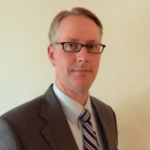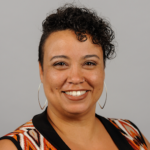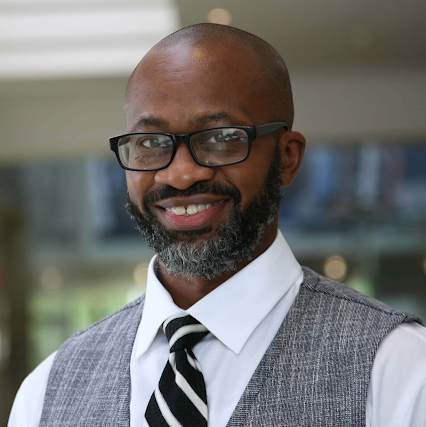Education First is proud to support a group of leading teacher preparation transformation centers (the Centers), technical assistance providers that support teacher preparation programs. The Centers, with the support of Education First, developed the DEI Companion Document to the Teacher Preparation Outcomes and Indicators, a guide to deepening a teacher preparation program’s focus on diversity, equity, inclusion and anti-racism (DEIA). In this three-part blog series, Centers meet with faculty and staff from their teacher preparation program partners to explore the programs’ existing and planned efforts to apply a deeper focus on DEIA, including efforts that are proposed in the DEI Companion Document.
In this second blog, Dr. Ernest Black, the Systemwide Director at CalStateTEACH, meets with faculty and staff at California State University. Throughout the blog, we include snapshots that highlight how the program is engaging in some of the suggested actions that the DEI Companion Document presents. While every program is on its own unique DEIA journey, we hope this blog offers some learnings and inspires programs to continue the important work to transform teacher education.
At the California State University (CSU), we are committed to encouraging and inspiring teachers to advance the principles of equity and inclusion in their classrooms. Our teacher preparation programs provide teacher candidates with the perspectives and strategies necessary to recognize, value, and advance the cultural, social and academic identities of diverse students served by California’s schools and to partner with families and communities in supporting and sustaining student success in school.
To do this, we—as university faculty, staff and administrators, as well as K12 partners—must be prepared ourselves. That is why CSU’s Center for Transformational Educator Preparation Programs (CTEPP) partnered with faculty, staff and administrators across the CSU system to develop the Equity and Excellence Certification.
I recently spoke with Dr. Mark Ellis, Dr. Bre Evans-Santiago and Ms. Cheryl Ordorica—who all played a critical role in the Equity and Excellence Certification’s development—to learn more about the certificate and its early impact. Dr. Mark Ellis is a Professor of Secondary Education and the Director of the Mathematics and Science Teacher Initiative program at Cal State Fullerton. Dr. Bre Evans-Santiago is an Assistant Professor at CSU Bakersfield and the Department Chair for Teacher Education. Cheryl Ordorica works at Chico State as Senior Recruitment Coordinator and Advisor for the CLASS teacher residency program.

Dr. Mark Ellis

Dr. Bre Evans-Santiago

Cheryl Ordorica, M.Ed.
ERNEST: I’m eager to dive into the details of the Equity and Excellence Certification but before we do, tell me, why does diversity, equity, inclusion and anti-racism matter to you, personally and professionally?
BRE: For me, it connects back to the teachers of color I had while growing up. I had one Black teacher. That was it for me. She represented an affirmation of my self-identity and what it looks like to be a successful Black woman. Being in teacher education, we want to not only see our teachers succeed in the field, but we also want K12 students to feel validated and to understand that their voice matters. For a long time, we have seen historical oppression within the education system limit students’ ability to thrive because they don’t know what that looks like. And so for me, it’s a personal dedication to ensure that our CSU teachers and teacher educators, as well as administrators and staff, become more aware of what it looks like to dismantle these barriers in the CSU system.
MARK: My focus on the inequities in our education system stems from my experience as an undergraduate. I grew up in San Jose and attended diverse public schools. It wasn’t until college that I became aware of how the school system sorted me and my friends, segregating us into different tracks. I grew particularly interested in Math and so focused on becoming a math teacher. Math is a primary way in which the education system separates and segregates students and so math is a lever to address system inequities. Addressing inequity and promoting anti-racist teaching is at the center of my work on math teaching. This matters for the future of our society. What are the implications for our society if we don’t recognize the brilliance of a majority of our population?
CHERYL: For me, as a Mexican-Lithuanian-American feminist, and higher education transformational/emotional leader in the CSU system, I am motivated to enhance a supportive learning community for faculty, staff and administrators across California. At CSU, part of our mission is aimed at educating others on best practices of effective marketing and retention strategies to increase diversity in teacher preparation and education and to assist in removing systemic barriers and oppression for educators of color, like with our teacher residency program. I dedicate this work to the vision that we can live in an anti-racist world with minimal violence and hate.
CTEPP’s vision is for CSU educator preparation programs to provide national leadership in quality, diversity, equity and inclusion. Aspiring teachers who are Black, Indigenous, and People of Color (BIPOC) thrive in CSU programs. Graduates enter the teaching profession prepared to disrupt systemic oppression and engage with socially just educational practices; they work toward the transformation of inequitable structures and advance greater equity in student outcomes.
ERNEST: Thank you all for sharing. I’d like to shift our focus to the certification. Can you tell me about the Equity and Excellence Certification? What is it, and how did it start?
MARK: As CTEPP was launching, the CSU Chancellor’s Office created a toolkit for activating, encouraging and inspiring teachers for equity and inclusion (AEITEI). The goal of this toolkit is to create a resource repository and a collaborative space where faculty, staff and others in teacher preparation could share how they are working toward diversifying the teaching profession. I stepped in as the coordinator of this effort. We have an advisory board of faculty and staff that brainstorms content for the toolkit. They identified a need to help teacher preparation stakeholders learn about issues of equity, diversity and anti-racism in the context of teacher preparation. The AEITEI advisory board and CTEPP therefore partnered to develop and launch the certification. One of our goals for the certification is to provide a deeper understanding of why equity, diversity and anti-racism is important. That is why the first course lays out the historical context of what we see currently happening in our school system.
BRE: As Mark noted, the certificate is a professional development program designed to improve understanding of educational equity. It is also meant to build participants’ theoretical and practical capacity to engage in anti-racism and equity work. Many of our faculty want to do the anti-racist work but don’t know how. We therefore hope the certification provides an opportunity for faculty, administrators, staff, and district and community partners to build a common language and foundational knowledge of diversity, equity and inclusion and what these principles mean for teacher preparation and our education systems. The certification includes three courses:
ERNEST: It feels important to have these initiatives co-created with teacher preparation faculty, staff and others. How did you invite stakeholders to participate in this work?
BRE: We were certainly strategic. We created an interest form that we shared with faculty, staff and others across all the CSU campuses. We wanted to have an advisory board that was diverse in terms of race, role, campus, content area and expertise. We selected advisory board members and tasked them with developing courses for the certification. We then engaged in an iterative process with peer reviews and also sought feedback from CTEPP leadership and the AEITEI Toolkit advisory board. We’re proud to have involved so many people because this helps us ensure that we are effectively meeting the needs of our community and doing something that is sustainable.
ERNEST: What impact do you hope the Equity and Excellence Certification will have?
CHERYL: Our hope is to implement an intersectional framework to develop a cohesive, effective learning experience for participants that focuses on 1) recruitment, preparation and retention of Black, Indigenous and educators of color, and 2) ensure that all candidates enter teaching and/or education administration ready to disrupt systemic oppression and engage with socially just practices.
MARK: We only recently launched the certificate—you can sign up for the first course here—but have already received positive feedback from our participants that demonstrates this impact. Our participants shared how the courses have helped them to pause and reflect on their personal experiences and privileges, and to deepen their understanding of the historical context. Some described that it was their first time seeing concrete demonstrations of inequities in the school system and how the education system privileges White students. In developing the certification, we talked about how we wanted to offer individuals the time and space to reflect and be challenged, and it’s really positive to see that come to fruition.
“Our participants shared how the courses have helped them to pause and reflect on their personal experiences and privileges, and to deepen their understanding of the historical context. Some described that it was their first time seeing concrete demonstrations of inequities in the school system and how the education system privileges White students.”—Dr. Mark Ellis
ERNEST: What advice do you have for others in teacher preparation who are seeking to create similar impacts in their sphere of influence?
BRE: Advisory boards have been critical for us. As leaders we have some but not all of the expertise. Sometimes the expertise we need is from people who we don’t work with regularly but who have great ideas. It is worth the time and effort to hear their advice.
MARK: To build on that, look at your peers. If your peer group is not reflective of the rich diversity of our schools and society then you need to expand your peer group. There’s so much more learning when you engage in conversations with a diverse group. Separately, we are in a time when some people want to play fast and loose with facts. This work, however, is not a matter of opinion. There are a lot of rich resources that are accurate and have been verified. Our courses reference published and verifiable resources. Be intentional and use those resources to demonstrate the factual nature of this work.
CHERYL: To build on that, self-reflect on self-identity development, empowerment and self-efficacy; become self-aware of personal biases and privileges while serving others; and educate yourself on an anti-racist framework with a proactive approach that takes time and dedication.
ERNEST: That brings us to the end of our time together. Thank you for your thoughtful advice and for sharing this impeccable initiative with me and the field, and good luck with your continued development and implementation of the certification.
| Resource Center
Below is a list of helpful resources, including those referenced above.
|
This post is the second in a three-part blog series authored by leading teacher preparation transformation centers—Branch Alliance for Educator Diversity, CalEPIC and CSU Center for Transformational Educator Preparation Programs (CSU CTEPP)—who are working together with other leading transformation Centers to transform the way teachers are prepared. In this series, leaders from these Centers talk with faculty and staff from their teacher preparation program partners about their existing and planned efforts to apply a deeper focus on diversity, equity, inclusion and anti-racism in teacher education. Read more about the three-part blog series here, and stay tuned for our upcoming final blog post. Don’t forget to share the series with your colleagues. We’ll be using #teacherprepmatters to spread the word, and invite you to do the same! Feel free to send comments to info@education-first.com and sign up for our email list.

